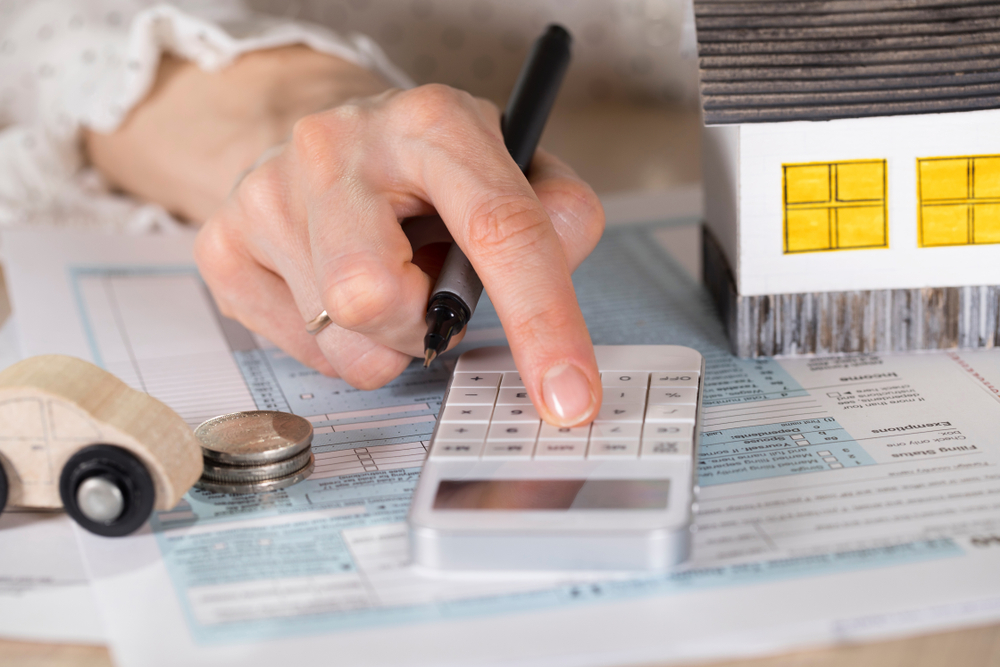
As the price of real estate in Cedar City—and Southern Utah in general—have been going up, you may be thinking about selling your property to ride the housing market wave. But, as with all large sales and earning, you may be wondering if capital gains tax will be applied to your property sale.
Well, you are in luck since AA Tax & Accounting Services is here to tell you all about capital gains, how it applied to your real estate sales, and how to prevent paying capital gains tax.
What Is Capital Gains Tax
Capital gains are a form of income tax that is gained by profiting from the sale of an asset. These assets can vary from things like selling stocks, businesses, or in many instances, real estate.
- Short-term capital gains – When you own an asset for under a year and make a profit from the sale of the asset, you will have short-term capital gains tax applied. The tax will be equal to your current income tax rate.
- Long-term capital gains – When you own an asset for over a year and make a profit from the sale of the asset, long-term capital gains taxes are applied. However, the significant difference is that the tax rate can be set at 0%, 15%, or 20%. What rate you are taxed with will depend on your filing status and your current taxable income. As a rule, long-term capital gains are lower than short-term capital gains.
However, when it comes to selling houses, the capital gains rules can differ from what is listed above.
How To Exclude Taxable Capital Gains On Real Estate Sales
When it comes to selling real estate, capital gains tax can be applied a bit differently. At this time, the IRS allows a certain amount of capital gains tax exclusion, dependent on your filing status.
- Single filers can exclude $250,000 of real estate capital gains tax.
- Married, filing jointly couples can exclude $500,000 of real estate capital gains tax.
For an example of this exclusion, say a married couple bought a house 8 years ago for $210,000 and sold it for $750,000. The couple would have made $540,000 in profit, and $500,000 of that would be nontaxable. Only $40,000 would have capital gains tax applied.
When Capital Gains Exclusion Doesn’t Apply
While that sounds excellent, there are some things that can cause you to lose out on your capital gains real estate tax exclusion. These factors are:
- The expatriate tax applies to your taxes.
- Within the two years before the sale of this property, you have already claimed a real estate capital gains tax.
- You obtained the home in a 1031 exchange within the last five years.
- The home wasn’t your primary residence.
- For at least two of the last five years, you did not live in the house.
- You haven’t owned the home for more than two years.
If you aren’t sure if one of these exclusions will apply to your property sale, you can always work with your local Cedar City tax consultant.
Ways You Can Prevent Capital Gains Tax On Your Property Sale
There are legal ways you can prevent capital gains tax on your property sale, or at the very least, you can reduce how much you will need to pay.
Keep records on home improvement costs.
To help reduce the taxable income you made on the sale of your home, it is best if you keep good records of what you paid for home improvements.
For instance, say you paid $15,000 for a kitchen remodel. As long as you have the invoices and receipts to prove what you paid for, you should be able to subtract the cost of your improvements from your overall capital gain taxable earnings.
Spend two years in the house as a primary residence.
To prevent a large capital gains tax, you will need to live in your property for at least two years in a five-year period before selling the home. While you don’t need to live in your property for two years consecutively, it does need to be your primary residence for two of the five years prior to selling.
If you sell your property under one year of living in it can subject you to short-term capital gains tax, which is the more expensive form of capital gains tax.
Check if you can qualify for capital gains tax exclusion.
There are uncontrollable circumstances that come up in life, which may cause you to sell your property and lead you to have taxable capital gains. However, there are capital gains tax exclusions that may apply to your home’s sale.
You can check on the IRS website or consult with our tax accountant for advice tailored to your personal circumstances.
If you would like assistance preparing for your property sale and would like a personalized tax consultation with our accountant, feel free to contact us today to set up your appointment.






Leave a Reply